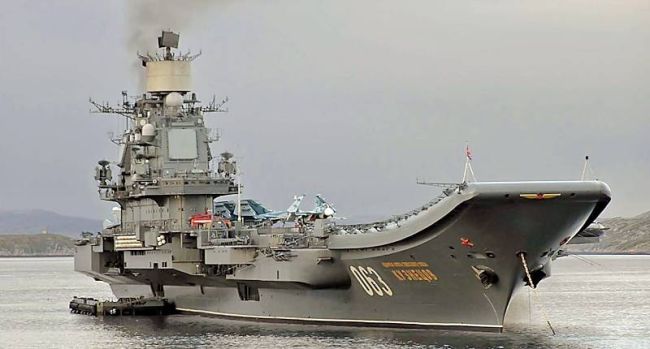FORT MONMOUTH, N.J. — The U.S. Army, Navy and Air Force met with an Indian delegation here to discuss potential collaboration efforts in emerging information and command and control technologies, Aug 31 — Sept. 3.
Government, industry and academia representatives from both countries presented research and discussed projects in the areas of service-oriented architecture, intelligent agents, language translation and artificial intelligence technologies.
Hosted by the U.S. Army Research, Development and Engineering Command’s communications-electronics center, or CERDEC, the workshop was a result of meetings held in India last February when a CERDEC delegation, at the request of the Deputy Assistant Secretary of the Army for Defense Exports and Cooperation, met with senior-level officials from the India Defense Research and Development Organization to finalize an information exchange agreement and to expand collaboration in command and control technologies.
“We see India as a key, strategic ally that has growing influence in the region, as well as worldwide. We’re getting a lot of guidance from administration and from our senior officials in DoD to build this relationship and to look at opportunities where we can cooperate. This workshop creates the right venue to do so by bringing the right people together to have those discussions,” said Matthew Warren, director for the Pacific Armaments Cooperation Office of the Under Secretary of Defense Acquisition, Technology and Logistics.
Coalition partnerships provide an efficient, cohesive approach to problem solving, said Lt. Col John Dailey, commander for the RDECOM International Technology Center Pacific.
“We’re firm believers that there are smart people all over the world, and we need to get them together so they can share information, approaches and perspectives. We want to leverage each other so we don’t re-invent the wheel. If a solution has been developed, we can adapt it. This saves time and resources that could be devoted to something else,” Dailey said.
As part of the workshop, CERDEC hosted a technical interchange meeting and panel discussion with industry representatives from both countries. The discussion focused on trends in information technology research to enhance coalition operations.
Facilitated by Gartner, Inc., panelists from Google, Microsoft, IBM, Infosys and Tata addressed international technology alliances and emerging technologies such as service oriented architecture, analytics and cloud computing, hand-held and mobile systems, collaboration platforms and mobile Smartphone applications.
“If we look back at the commercial world, they’re investing a lot of money in R&D, taking end-user input and feeding it back into their R&D cycles to figure out what they want to do next. And they really take that feedback in rapidly to get to the next target area. We need to smartly invest our R&D dollars and try to pair that with where industry trends are going,” said Trey Oats, an engineer with the Office of Naval Research.
Research and development plays a “crucial role” in equipping the Soldier — not because it brings science and technology to battlefield, but because it develops and adapts technologies to best fit the Warfighter’s needs, said Dr. V.S. Mahalingam, director for the Centre for Artificial Intelligence and Robotics, Bangalore India.
“Yes, there are available technologies being churned out by academic institutions and industry, but there still needs to be a process of translation because you cannot always take the existing form to the user; he wouldn’t be able to use it because his environment and domain is different and has very strict requirements. Everything has to be shaped into a solution that is acceptable to the user. That’s where the R&D community really plays a role, whether it’s in India, the U.S. or anywhere else. We provide a strong bridge,” Mahalingam said.
Workshop participants also visited CERDEC labs and traveled to Ft. Dix, N.J. to attend a coalition partners’ session at the Command, Control, Communications, Computers, Intelligence, Surveillance and Reconnaissance On-The-Move Event 2010 — or C4ISR OTM E10 — to learn more about CERDEC efforts to support systems-of-systems integration.
The workshop concluded with participants agreeing to pursue a project arrangement with CERDEC in command and control technologies.
“We’re definitely looking to maintain this open dialogue and continue to look for opportunities in our mutual interest that could fall under the new information exchange agreement. I believe this will pave the way for a strong relationship and many future activities. However, this wasn’t just about developing technologies; it was about developing relationships with key partners in a global community,” said Pete Glikerdas, acting director, CERDEC Command and Control Directorate.
Participants left, optimistic and satisfied with the overall structure, content and results of the workshop, said U.S. Air Force Major Jonathan Webb, director for Defense Cooperation and Armaments, U.S. Embassy, New Deli, India.
“Everyone came in excited about what they might learn from each other, and there were a lot of great discussions with some very pointed questions. It sparked excitement for how we might move ahead,” Webb said.
“The level of interaction, transparency and participation from government, industry and academia, was indicative that we live in a new day in regards to our relationship. This is something that wouldn’t have happened just a few years ago, and that’s very encouraging. We need to stress patience as we move ahead, but we’re going to see a lot of good things come out of this,” Webb said.
Source:
US Army

 von
von 
